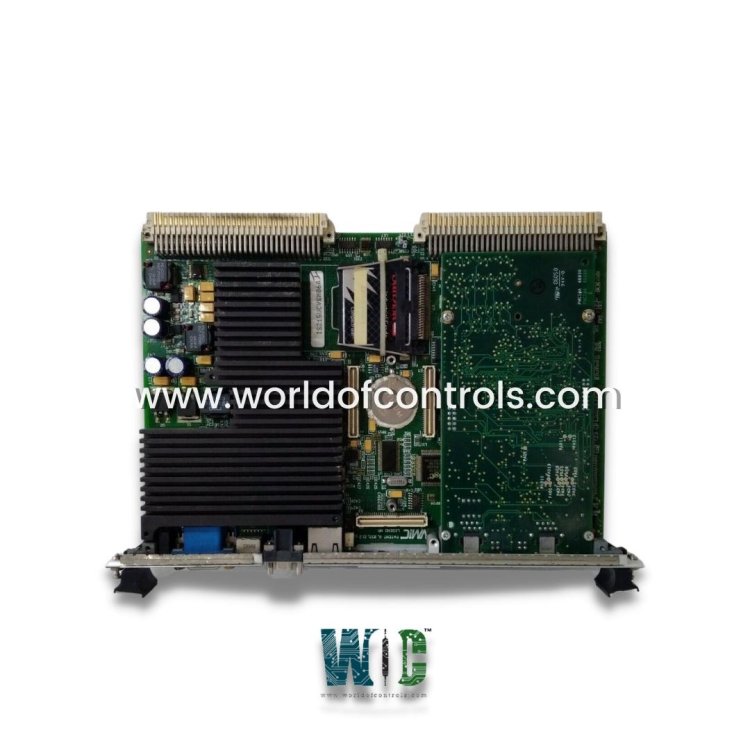The Future of Universal Controller Modules in Industry 4.0?

The Fourth Industrial Revolution, or Industry 4.0, is transforming the way industries operate by integrating advanced technologies like the Internet of Things (IoT), artificial intelligence (AI), and big data analytics into manufacturing and automation processes. At the heart of this transformation lies the Universal Controller Module (UCM), a versatile and adaptive component that is becoming indispensable in modern industrial ecosystems. In this blog, we’ll explore the role of UCMs in Industry 4.0, their future potential, and how they are shaping the factories of tomorrow.
What is a Universal Controller Module?
A Universal Controller Module is a compact, programmable device designed to control and manage a wide range of industrial processes. Unlike traditional Programmable Logic Controllers (PLCs), UCMs are highly flexible and capable of integrating with various sensors, actuators, and communication protocols. They serve as the brains of automated systems, enabling seamless control, monitoring, and optimization of operations.
The Role of UCMs in Industry 4.0
Industry 4.0 is all about connectivity, intelligence, and efficiency. UCMs are playing a pivotal role in enabling these principles by:
-
Enabling Smart Automation
UCMs are at the core of smart factories, where machines and systems communicate with each other in real time. They facilitate the integration of IoT devices, allowing for predictive maintenance, remote monitoring, and adaptive manufacturing processes. -
Supporting Edge Computing
With the rise of edge computing, UCMs are increasingly being used to process data locally, reducing latency and improving response times. This is critical for applications like robotics and real-time quality control. -
Driving Interoperability
One of the key challenges in Industry 4.0 is ensuring that diverse systems and devices can work together. UCMs, with their ability to support multiple communication protocols (e.g., MQTT, OPC UA, Modbus), act as a bridge between legacy systems and modern IoT platforms. -
Enhancing Scalability
UCMs are modular and scalable, making them ideal for businesses looking to expand their operations. Whether it’s adding new production lines or upgrading existing systems, UCMs provide a cost-effective and future-proof solution.
The Future of UCMs in Industry 4.0
As Industry 4.0 continues to evolve, Universal Controller Modules are expected to become even more advanced and integral to industrial operations. Here are some key trends shaping their future:
-
AI and Machine Learning Integration
Future UCMs will likely incorporate AI and machine learning capabilities, enabling them to analyze data, predict failures, and optimize processes autonomously. This will lead to smarter, self-learning systems that require minimal human intervention. -
Enhanced Cybersecurity Features
With increased connectivity comes greater vulnerability to cyber threats. The next generation of UCMs will focus on robust cybersecurity measures, such as encryption, secure boot, and real-time threat detection, to protect critical infrastructure. -
5G and Wireless Connectivity
The rollout of 5G networks will revolutionize industrial communication, and UCMs will play a key role in leveraging this technology. High-speed, low-latency connectivity will enable real-time control of complex systems, even in remote locations. -
Sustainability and Energy Efficiency
As industries strive to reduce their carbon footprint, UCMs will be designed to optimize energy consumption and support renewable energy integration. This aligns with the global push toward sustainable manufacturing practices. -
Human-Machine Collaboration
UCMs will facilitate closer collaboration between humans and machines, enabling workers to interact with automated systems more intuitively. This will be achieved through advanced interfaces, augmented reality (AR), and voice-controlled systems.
Challenges and Opportunities
While the future of UCMs in Industry 4.0 is promising, there are challenges to address:
-
Complexity: As UCMs become more advanced, their design and implementation may become more complex, requiring skilled professionals.
-
Cost: High-end UCMs with advanced features may come at a premium, though the long-term benefits often outweigh the initial investment.
-
Standardization: The lack of universal standards for UCMs can hinder interoperability, but industry-wide collaboration is helping to address this issue.
On the flip side, these challenges present opportunities for innovation. Companies that invest in developing user-friendly, cost-effective, and standardized UCMs will have a competitive edge in the Industry 4.0 landscape.
Conclusion
Universal Controller Modules are no longer just a component of industrial automation—they are a cornerstone of Industry 4.0. As technology continues to advance, UCMs will become smarter, more connected, and more essential to achieving the goals of efficiency, flexibility, and sustainability in manufacturing.
For businesses looking to stay ahead in the Industry 4.0 era, investing in UCMs is not just an option—it’s a necessity. By embracing these powerful tools, industries can unlock new levels of productivity, innovation, and competitiveness in the years to come.
What are your thoughts on the future of Universal Controller Modules? Share your insights in the comments below!
What's Your Reaction?

















